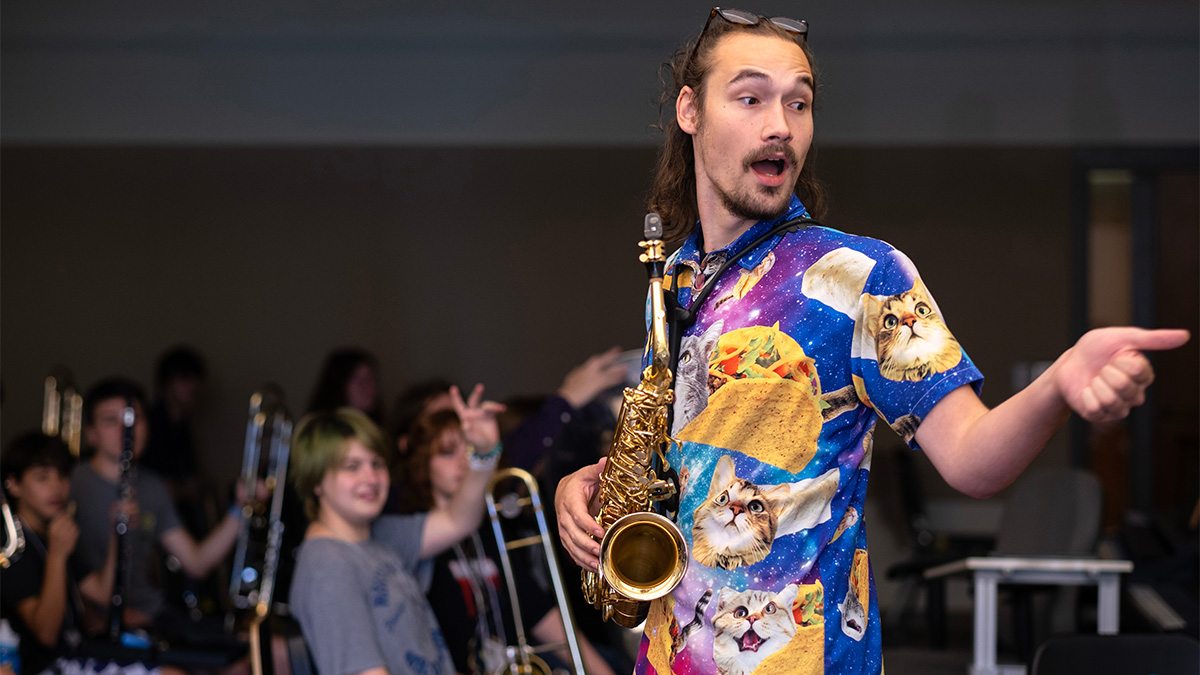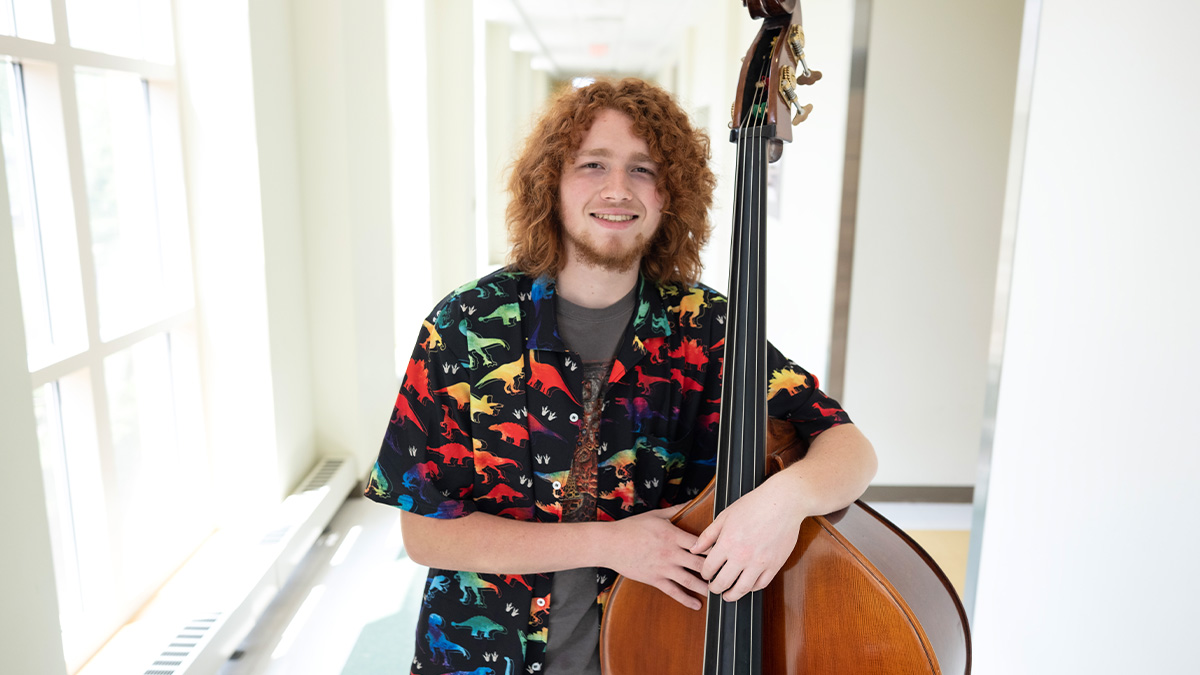Student musicians go from playing to teaching
At the UNC Summer Jazz Workshop, recent, current and incoming Carolina music students grow as educators and showcase the music department.

To hear Alex Upton tell it, someone can be a great musician and play skillfully but not know how to teach their craft.
Upton ’23 is certainly a great musician. It turns out the nationally recognized saxophonist also excels at imparting his knowledge onto others.
Upton is one of multiple recent, current and incoming Carolina music students who took on leadership and teaching roles in June at the UNC Summer Jazz Workshop, the music department’s week-long crash course on all things jazz. While the workshop is open to musicians of all ages, including current University students and adult players, the majority of participants are in middle and high school.
“Teaching, when it’s done well, comes back and feeds your playing,” said Upton, who in 2022 won the North American Saxophone Alliance’s Jazz Saxophone competition.
Now 13 years old, the workshop has grown from 40 participants at its inaugural edition to 137 this year, according to professor Stephen Anderson, the workshop’s director.
It’s a chance to expose budding musicians to the music department, let them check out campus and give them an opportunity to learn from Carolina’s star-studded faculty that includes Rahsaan Barber, Al Strong and Jason Foureman.
But Carolina students themselves often have lessons to share. Upton has shared his expertise on the fundamentals of soloing with combo groups and detailed different types of chords with a beginning improv class. Christopher Law ’24 has worked at the last two workshops and, like Upton, has also led a combo group.
The opportunity to teach at the camp also aids in the Carolina students’ development as musicians.
“I think back when I was in their shoes. There’s a lot of things you don’t realize you do until you have to teach it — until you’re in front of people and you don’t even think about what you do,” Anderson said.
For students like Upton and Law, teaching brings about a new set of challenges: figuring out the best way to communicate and collaborate, determining what exactly a student needs to improve at and striking a balance between praise and constructive criticism.
Like learning new skills as a musician, teaching can involve a bit of trial and error and consultation from others. Upton said he’s asked for — and received — good advice from faculty members on the best ways to teach certain concepts.
“The number one thing for me is just remaining open, remaining flexible, staying curious and staying humble,” Upton said. “Willing to admit when you’re wrong and when you need to work on something.”
Law, a bassist, said being responsible for instructing students who play a myriad of instruments was both a challenge and a boost to his own musical acumen.
“It really gave me appreciation of these other instruments: drums, piano, trumpets, saxophone,” said Law. “They all have different roles in the ensemble, and having to teach them how to fulfill those roles as somebody who doesn’t do that all the time is really helpful.”
One of the purposes of the workshop, Law said, is to put the music department on people’s radars. In the case of incoming first-year Sam Bivona, the mission was accomplished.
Like Law, Bivona is a bassist. He attended the workshop twice as a high schooler and enjoyed his experience, developing and strengthening relationships with faculty members such as Foureman. He said that factored into his decision to come to Carolina.

Incoming first-year student Sam Bivona said his experiences at the UNC Summer Jazz Workshop as a high schooler helped him become more familiar with Carolina’s music department. (Jon Gardiner/UNC-Chapel Hill)
With his college career on the horizon, Bivona reached out to Anderson about working at this year’s camp. In addition to being a counselor and supervising attendees, Bivona played in combo groups and helped assist other bassists.
“It’s a really good experience for me because that helps — that pedagogy side of it,” he said.
The UNC Summer Jazz Workshop is for more than musicians. Learn about Carolina students who participate in the workshop’s music journalism and jazz history tracks.
Then there’s the reward of seeing students progress during the week. In a matter of days, they go from introductions with one another to being able to play in front of a packed house at Moeser Auditorium in Hill Hall, where they performed pieces by the likes of John Coltrane, Miles Davis and Herbie Hancock.
With just two days to go before the final performance, Upton looked for a brave volunteer among his combo group willing to solo.
After listening to a moment of melodic ingenuity from a member of the rhythm section, he was enthused.
“Yeah … yeah!”
“Those moments are beautiful, and that’s why we do this,” Upton said. “But I think the importance of those moments is that the educator is sharing the win with those students. It’s the student’s victory, right? It’s not, ‘Yeah, they got it. I did a good job as an educator.’ But it’s the student’s victory because they did the work. They chose to improve.”




